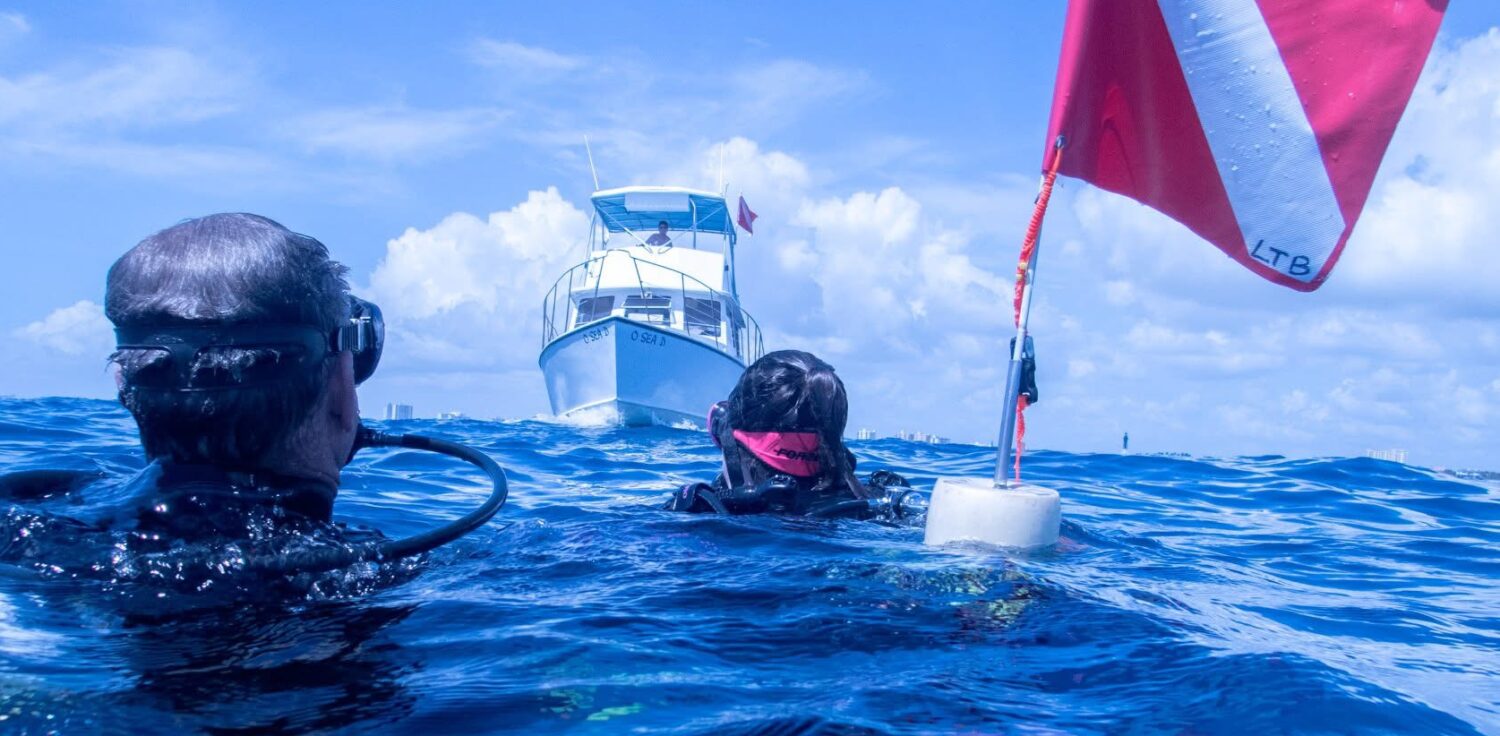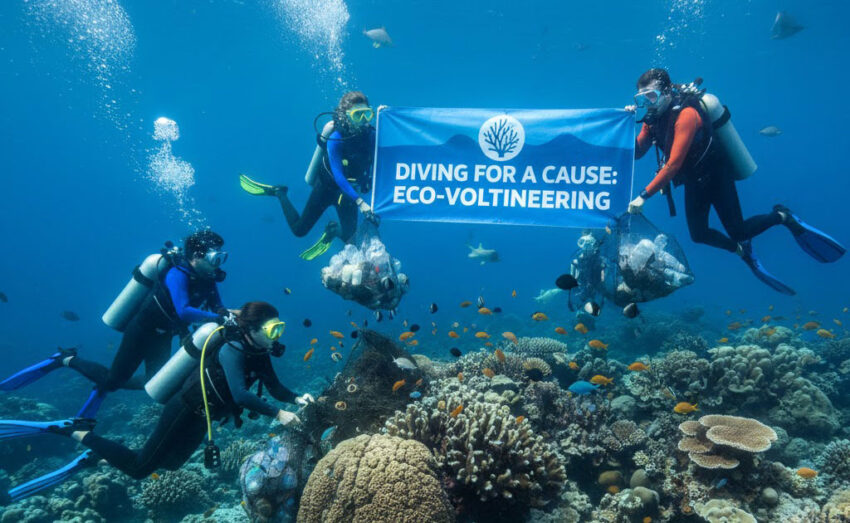Eco-volunteering has become one of the most meaningful ways to experience the ocean. For many divers, the underwater world is more than just a place to explore—it’s a fragile ecosystem worth protecting. As coral reefs suffer from climate change, pollution, overfishing, and habitat destruction, divers around the world are stepping up to support marine conservation projects through eco-volunteer programs. Whether it’s coral restoration, reef monitoring, removing marine debris, or assisting local research teams, eco-volunteering underwater provides an opportunity to make a tangible impact while enjoying some of the most beautiful dive sites on Earth.
From the Caribbean to Southeast Asia, eco-volunteer programs exist everywhere. But one region gaining massive attention is Diving South Florida, where easy access, warm waters, and thriving marine conservation initiatives make it an ideal destination. Many divers also join Group Dive Trips Pompano Beach, where local dive operators collaborate with nonprofits to support reef restoration and environmental cleanup missions.
If you are passionate about marine life, want to give back, and enjoy purposeful travel, eco-volunteering underwater might be the perfect adventure. This guide explores what eco-volunteer diving involves, how to get started, the top programs worldwide, and why this type of diving is so important for the future of our planet.
What Is Eco-Volunteering Underwater?
Eco-volunteering underwater refers to participating in marine conservation efforts while diving. Unlike recreational diving, eco-volunteer diving has a clear mission: to protect or restore marine ecosystems.
Common eco-volunteer diving tasks include:
1. Coral Restoration
Volunteers assist marine biologists in planting coral fragments, maintaining nurseries, and monitoring coral health. Coral restoration projects are especially popular in Florida, the Caribbean, and the Indo-Pacific.
2. Reef Monitoring
Divers help collect data on:
- Coral bleaching
- Fish populations
- Water quality
- Invasive species
This data is essential for long-term conservation strategies.
3. Marine Debris Removal
One of the most impactful contributions divers make is removing:
- Fishing lines
- Plastic waste
- Abandoned traps
- Ghost nets
These items can severely damage marine life and coral reefs.
4. Underwater Photography for Research
Experienced photographers help document coral health, marine species, and environmental changes. Photos support research publications and conservation campaigns.
5. Species Identification and Protection
Volunteers often record sightings of turtles, sharks, rays, and reef fish, contributing to biodiversity databases.
This hands-on involvement empowers divers to directly contribute to ocean health—something typical vacations rarely offer.
The Growing Popularity of Eco-Volunteer Diving
Eco-volunteering has grown significantly as travelers seek purposeful adventures and environmental awareness increases. Many divers want more than just sightseeing—they want to make a difference.
Why Eco-Volunteering Is on the Rise
- Increased coral bleaching events have raised awareness about the fragility of reefs.
- Citizen science programs now welcome recreational divers to contribute.
- Social media has made conservation projects more visible.
- Dive certification agencies are offering new eco-focused specialties.
- Travelers want ethical, sustainable travel experiences.
Today, eco-volunteer diving is no longer niche—it’s becoming a global movement.
Diving South Florida: A Hub for Underwater Eco-Volunteering
Florida is one of the most accessible destinations for marine conservation diving in the United States. Diving South Florida offers warm waters year-round, beautiful reefs, and numerous organizations dedicated to restoring damaged coral ecosystems.
Why South Florida Is Ideal for Eco-Volunteers
- The Florida Reef Tract, the third-largest barrier reef system in the world, lies just offshore.
- Climate change and disease outbreaks have heavily affected Florida’s corals, making restoration efforts highly urgent.
- Conservation groups like Reef Renewal USA, Coral Restoration Foundation, and Biscayne National Park Institute run ongoing volunteer programs.
- South Florida dive shops frequently organize conservation-focused dives.
Whether you’re staying in Miami, Fort Lauderdale, or the Keys, conservation diving opportunities are abundant.
Group Dive Trips Pompano Beach: Conservation With Community
Many divers prefer joining Group Dive Trips Pompano Beach because they combine fun, exploration, and environmental action. Pompano Beach is known as one of Florida’s top diving destinations and a central hub for wreck diving, reef restoration, and marine conservation projects.
What Makes Pompano Beach a Great Eco-Dive Destination?
- Access to numerous shipwrecks that attract marine life
- Shallow and deep reefs suitable for all experience levels
- Marine debris removal dives organized monthly
- Coral nursery maintenance opportunities
- Strong partnerships between dive operators and conservation nonprofits
Group trips offer a supportive atmosphere where both beginners and advanced divers can contribute to important marine work. They also make eco-volunteering more affordable due to shared costs and group discounts.
Types of Eco-Volunteer Underwater Programs
There are various ways to get involved in conservation diving depending on your time commitment, budget, and interests.
1. Weekend Eco-Volunteer Dives
Perfect for local divers or vacationers looking for a short but meaningful experience.
- Coral nursery maintenance
- Beach and reef cleanups
- Fish surveys
These are common in South Florida, Hawaii, California, and the Caribbean.
2. One- to Two-Week Conservation Expeditions
These programs are designed for travelers seeking a structured schedule.
Destinations include:
- Florida Keys
- Cozumel
- Belize
- Thailand
- Fiji
- Maldives
Volunteers often live in shared accommodations and work daily on conservation tasks.
3. Long-Term Marine Conservation Internships
Ranging from one month to one year, these programs attract students, gap-year travelers, and aspiring marine biologists.
Interns typically:
- Assist researchers
- Conduct underwater surveys
- Receive advanced dive training
- Gain scientific diving experience
4. Citizen Science Programs
These programs require minimal time commitment and focus on collecting data during regular dives.
Organizations include:
- REEF (Reef Environmental Education Foundation)
- Project AWARE
- CoralWatch
Citizen science allows divers worldwide to contribute to global databases.
How Eco-Volunteering Helps Marine Ecosystems
Eco-volunteer programs create vital support for marine environments facing serious threats. While governments and research institutions play key roles, volunteer contributions amplify impact.
1. Boosting Coral Growth
Volunteers help maintain coral nurseries where damaged coral fragments grow before being replanted on reefs. This accelerates reef recovery.
2. Restoring Biodiversity
By removing invasive species and assisting with habitat reconstruction, volunteers help reef life thrive again.
3. Removing Harmful Debris
Underwater cleanups prevent entanglement of turtles, fish, dolphins, and sharks while improving overall reef aesthetics.
4. Collecting Essential Data
Data collected by volunteers helps researchers track environmental changes and plan conservation strategies more effectively.
5. Enhancing Community Awareness
Divers often become advocates, sharing conservation knowledge with others and promoting sustainable tourism.
Skills Needed for Underwater Eco-Volunteering
While some programs welcome beginners, others require specific certifications.
Basic Requirements
- Open Water Diver certification
- Good buoyancy control
- Comfort swimming near fragile corals
Advanced or Specialized Certifications (Optional but Helpful)
- Advanced Open Water Diver
- Peak Performance Buoyancy
- Coral Restoration Certifications
- Scientific Diving Certifications
- Underwater Photography courses
Good buoyancy is especially crucial to avoid damaging delicate ecosystems while working.
How to Choose the Right Eco-Volunteer Program
When selecting a program, consider:
1. Program Reputation
Look for established organizations with transparent conservation goals.
2. Safety Standards
Ensure trained professionals supervise all underwater tasks.
3. Conservation Impact
Choose programs with measurable results—such as coral outplanting success rates or debris removal statistics.
4. Training and Support
Good programs include pre-dive training, environmental briefings, and skills workshops.
5. Ethical Standards
Ensure the project does not exploit wildlife or engage in unethical tourism practices.
Eco-Volunteering Tips for First-Time Participants
- Practice buoyancy before conservation dives.
- Avoid touching or standing on coral.
- Use reef-safe sunscreen.
- Bring eco-friendly dive gear when possible.
- Respect all marine life and avoid chasing or disturbing animals.
- Stay hydrated and dive within your limits.
Eco-volunteering is rewarding, but safety and environmental responsibility should always come first.
Conclusion: Making a Difference Underwater
Eco-volunteer diving allows you to connect deeply with the ocean while contributing to its preservation. Whether you are interested in Diving South Florida, joining Group Dive Trips Pompano Beach, or participating in international conservation expeditions, there are countless opportunities to get involved.
The health of our oceans depends on collective action. Every coral planted, every piece of debris removed, and every data point collected helps restore the underwater world for future generations. By choosing to dive with purpose, you become part of a global movement dedicated to protecting one of Earth’s most precious environments.
If you’re ready to take your diving passion to the next level, eco-volunteering underwater is one of the most impactful and unforgettable experiences you can have.


